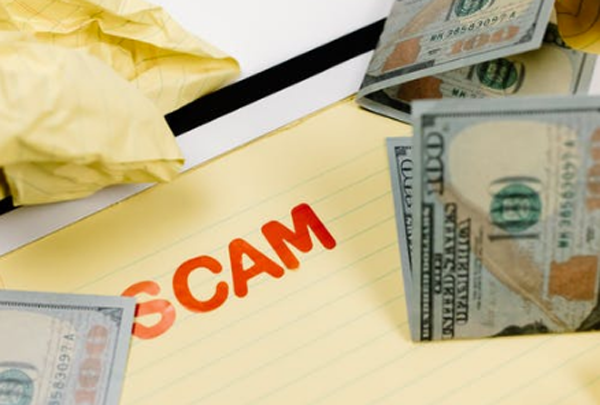
photo courtesy of Tara Winstead / Pexels
Businesses, especially small businesses, face several types of fraud and scams every day, whether via the mail, email, phone or internet. In addition to internet, phone and email scams, scammers have used the U.S. mail to carry out their scam by using names that are similar to a federal or state government agency. Scammers have also used the Internal Revenue Service and other federal and state agencies to carry out their illegal schemes.
Earlier this year, Tennessee Secretary of State Tre Hargett’s office released a warning that Tennessee businesses were being targeted by a company pretending to be associated with the Tennessee secretary of state; but, in fact, the company had no such legitimate government association.
According to the Tennessee secretary of state news release sent out, a company called the Business Document Center was sending businesses registered with the Tennessee secretary of state a mailer that implied that the business needed a certificate of good standing to operate in Tennessee. Nonprofit organizations operating in Tennessee and registered with the Tennessee secretary of state also received the Business Document Center mailers. The Business Document Center required businesses and nonprofits to pay a fee of $87.25 to request a certificate of good standing from the State of Tennessee on their behalf.
While other states have a document called a certificate of good standing, Tennessee does not have any document so named. The closest document to a certificate of good standing that Tennessee has, according to the Tennessee secretary of state, is one called a certificate of existence. The certificate of existence is a document that a business operating in Tennessee can request from the Tennessee secretary of state for $20. The Tennessee secretary of state’s certificate of existence certifies that an entity conducting business in Tennessee is active and in good standing with the State of Tennessee.
“On your behalf” is a key phrase that scammers and companies similar to Business Document Center will often use to target businesses, especially small business or nonprofits.
New small business owners just getting started should be aware, while creating their new company and requesting a Federal Employee Identification Number (FEIN) from the Internal Revenue Service, that there are websites on the internet charging between $300 to $400 for businesses to receive a FEIN. Using Google and Yahoo to search “IRS FEIN” will often bring up websites in the initial search that are not associated with the IRS.
The IRS does not charge a fee for a FEIN. A FEIN is similar to an individual’s social security number, Businesses use the FEIN to file federal, state and local tax returns, open bank accounts under the business name, and to conduct business with other businesses. Businesses using an attorney or an accountant to set up a FEIN on their behalf often will have a fee for legal and accounting services.
Scammers will use a specific type of scam until it doesn’t work anymore. Once a scam is no longer working well, scammers will modify their scam. For scammers pretending to be a federal or state tax agency, the scammers have turned to targeting businesses and individuals with fake Internal Revenue Service and state tax agency tax notices sent through the mail in hopes their victim will send the scammers money.
The fake tax notice from the scammers will look authentic, right down to the notice code, when compared to a legitimate tax notice for outstanding tax liabilities. The fake tax notice from the scammers indicates that the business or individual has an outstanding tax liability or fee. The only difference between an authentic notice from the Internal Revenue or other state or federal agency is the address, contact phone and the party listed to make the payment out to.
Every day, businesses and individuals are targets of scammers pretending to be a federal or state tax agency. Businesses and individuals should verify with the federal and state agencies that the fee or outstanding tax liability is valid before sending any money by contacting the federal or state agency themselves or having their tax preparer or attorney contact the federal or state agency using the phone number found on the federal or state agency’s website.
Business and individuals who receive mail from scammers should notify the U.S. Post office, which has a division that investigates scams and fraudulent communications sent through the postal system.
New businesses requesting a FEIN online should use the official irs.gov website and be aware that there are websites that have “IRS” in their URL address that are not the official irs.gov website.
As always, when it comes to scams and fraud, ask questions, do your research, and stay vigilant.













